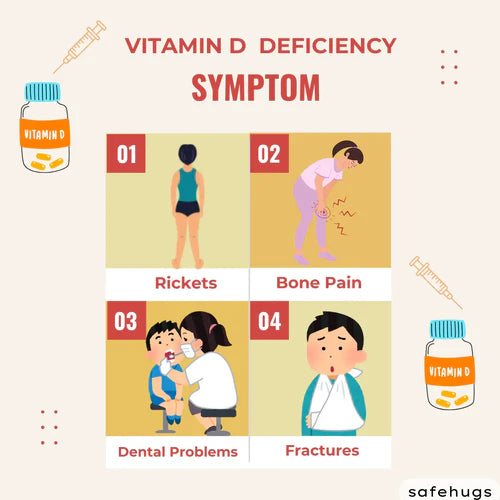Signs of Appendicitis in Kids: Symptoms, Causes, and Treatment

Appendicitis is a common condition that occurs when the appendix, a small tube attached to the large intestine, becomes inflamed. While it can affect individuals of any age, recognizing appendicitis in children is particularly crucial due to their often limited ability to communicate their symptoms. Recognizing the signs of appendicitis in kids early is key to preventing complications.
What Causes Appendicitis in Kids
Appendicitis in children is typically caused by an obstruction in the appendix. This blockage can result from hardened stool, lymphoid hyperplasia, or foreign objects. Infections, both viral and bacterial, can also lead to inflammation. Additionally, a family history of appendicitis can increase a child's risk, highlighting the role of genetics.
Symptoms and Signs of Appendicitis in Kids
Recognizing appendicitis in children can be challenging, as symptoms may vary by age.

Appendicitis Symptoms in Young Kids
In younger children, signs of appendicitis in kids can include:
-
Abdominal pain, often starting around the belly button and moving to the lower right side
-
Nausea and vomiting
-
Loss of appetite
-
Low-grade fever
-
Irritability and lethargy
Common Signs in Different Age Groups
For 4-year-olds and 5-year-olds, common signs of appendicitis in kids include:
-
Persistent abdominal pain
-
Increased sensitivity to touch in the lower right abdomen
-
Swollen or bloated abdomen
-
Difficulty walking or standing up straight
How to Check for Appendicitis at Home

Parents can monitor the initial signs of appendicitis in kids by observing:
-
Persistent and localized abdominal pain
-
Nausea and vomiting
-
Bloating or swelling in the abdomen
-
Loss of appetite
-
Fever
-
Difficulty or pain when walking or moving
Differentiating Between Appendicitis and Constipation
It's important to differentiate the signs of appendicitis in kids from constipation, which is common in children. While both conditions can cause abdominal pain, appendicitis is typically accompanied by a consistent, worsening pain, fever, and vomiting, whereas constipation often involves irregular bowel movements and relief after passing stool.
Appendicitis vs Constipation in Kids
Understanding the key differences between constipation and signs of appendicitis in kids can help parents make informed decisions:
Appendicitis:
- Steady, worsening pain in the lower right abdomen that does not subside with bowel movements.
- Fever, nausea, and vomiting, often starting a few hours after pain.
- The pain is localized and can be tender to touch.
- Child may appear lethargic and irritable.
Constipation:
- Intermittent abdominal pain relieved by bowel movements.
- Bloating and hard stools, sometimes with difficulty passing stool.
- No fever or nausea; discomfort may come and go.
- The pain typically doesn’t worsen or remain steady.
If you're unsure whether the pain is from appendicitis or constipation, watch closely for changes in the child’s symptoms. If there is any doubt, it’s safer to seek medical help immediately.
When to Seek Medical Advice
If a child exhibits persistent abdominal pain, especially if accompanied by fever and vomiting, immediate medical consultation is advised. Other red flags include:
-
Pain that doesn’t go away and may worsen over time.
-
Inability to pass gas or stool after several hours of pain.
-
Severe pain with a noticeable bulge or swelling in the lower abdomen.
-
Signs of dehydration, such as dry mouth, lack of tears, or reduced urine output.
-
Unexplained weakness or drowsiness, especially if the child cannot be awakened easily.
Discover Safehugs Parenting Blog, for practical tips, heartfelt advice, and creative ideas to support your parenting journey.
Complications of Appendicitis in Kids:

-
Burst Appendix: A ruptured appendix spreads infection, causing peritonitis, severe pain, and requiring emergency surgery.
-
Abscess Formation: A ruptured appendix can form an abscess, requiring drainage and antibiotics to prevent further infection.
-
Delayed Diagnosis: Untreated appendicitis can worsen, leading to more extensive surgery and longer hospitalization.
-
Sepsis: If the infection spreads to the bloodstream, it can cause organ failure and requires immediate medical care.
-
Intestinal Obstruction: In rare cases, an inflamed appendix can block the intestines, causing severe pain and vomiting.
-
Chronic Appendicitis: Intermittent pain can occur, requiring surgery to prevent complications.
-
Fertility Issues in Women: Untreated appendicitis can lead to pelvic infections that affect reproductive organs and fertility.
-
Peritonitis: A ruptured appendix can spread infection to the abdominal cavity, requiring immediate surgery.
-
Damage to Surrounding Organs: Infection can affect nearby organs like the bladder or colon, causing lasting damage.
What Can Be Mistaken for Appendicitis
Several conditions share symptoms with the signs of appendicitis in kids, including:
-
Stomach Flu (Gastroenteritis): Often accompanied by diarrhea, vomiting, fever, and a general feeling of illness. The pain is typically more generalized and may not be localized to the lower right abdomen.
-
Gas and Indigestion: These conditions can cause bloating, discomfort, and cramping but generally resolve on their own without fever, vomiting, or severe pain.
-
Urinary Tract Infections (UTIs): Often characterized by painful urination, frequent urination, and possible blood in the urine. UTIs can sometimes cause abdominal discomfort, but typically there is no persistent pain or fever as seen in appendicitis.
-
Gastritis or Acid Reflux: Inflammation of the stomach lining can lead to nausea, vomiting, and abdominal discomfort, but this is often relieved with antacids and is not associated with a specific area of pain.
-
Infections in the Reproductive Organs (in girls): Conditions like ovarian cysts or pelvic inflammatory disease can cause lower abdominal pain and may mimic appendicitis.
Chronic Appendicitis Symptoms in Kids
Chronic appendicitis, though rare, involves recurrent or prolonged abdominal pain that comes and goes over time. Unlike acute appendicitis, where symptoms are typically sudden and severe, chronic appendicitis symptoms are often milder and episodic, which can make it harder to diagnose. This can lead to delays in treatment, as symptoms might be mistaken for other common digestive issues or infections.
Symptoms of chronic appendicitis may include:
-
Intermittent pain
-
Nausea and vomiting
-
Loss of appetite
-
Low-grade fever
-
Changes in bowel habits
-
Fatigue
Due to the episodic nature of chronic appendicitis, it's important to monitor symptoms closely and consult a doctor if they persist or worsen. In some cases, chronic appendicitis can lead to complications such as an abscess or a ruptured appendix if left untreated.
Uncommon Symptoms and Associated Issues
While classic symptoms of appendicitis include abdominal pain, nausea, and vomiting, some children may exhibit less typical signs that can make diagnosis more challenging:
-
Bedwetting: Some children with chronic appendicitis may experience bedwetting or difficulty controlling their bladder. This could be due to the discomfort and disrupted sleep patterns caused by recurring pain.
-
Intermittent pain: Pain may appear sporadically, lasting a few hours to days, and is often not as severe as in acute appendicitis. The pain can sometimes be mistaken for other abdominal issues.
-
Mood changes or irritability: Children experiencing recurrent abdominal discomfort may become irritable or withdrawn, making it harder to identify the underlying issue.
-
Difficulty with physical activity: Children may report feeling discomfort during physical activities, especially those that involve movement or twisting, like running or jumping.
These uncommon symptoms may lead to misdiagnosis, so parents should track any recurring symptoms and be proactive in seeking medical advice for a more accurate diagnosis.
Treatment and Recovery for Appendicitis in Kids
The mainstay of treatment for appendicitis, including chronic cases, is surgery. A thorough assessment is required to determine the extent of the condition and the need for intervention.
-
Surgery for appendicitis typically involves either a laparoscopic appendectomy, which uses small incisions for faster recovery and minimal scarring, or an open appendectomy if complications like a ruptured appendix occur.
-
Antibiotics are administered both before and after surgery to prevent infections and support healing. Pain management is provided post-surgery through medications, and if dehydration or electrolyte imbalance occurs, intravenous fluids may be given.
Post-Surgery Recovery Process
The recovery process after appendicitis surgery can vary, but it generally involves:
-
Pain management: Mild pain and discomfort are expected after surgery, which can be managed with prescribed pain medications. Over-the-counter pain relievers may be used once the child is stable.
-
Gradual return to normal activities: After the initial recovery period (usually 1-2 weeks), children can gradually resume normal activities, but strenuous physical activities, including sports or heavy lifting, should be avoided for about 4-6 weeks to ensure proper healing.
-
Diet: The child may initially be on a liquid diet, progressing to solid foods as they tolerate it. A balanced diet with plenty of fluids is essential to support recovery.
-
Regular follow-up appointments: Monitoring the healing process is crucial. Doctors may recommend follow-up visits to ensure there are no complications, such as infections or bowel obstructions.
-
Activity restrictions: To ensure proper recovery and minimize the risk of complications, physical activity and heavy lifting should be limited until the doctor provides approval for more strenuous exercise.
Expert Advice
"Adhesions are a common cause of recurrent pain or bowel obstruction. Gentle mobilization and early movement after surgery, under medical supervision, can reduce the risk of scar tissue formation. Follow up with your doctor to monitor recovery closely." - Dr. Parveen Bansal
Appendicitis Family History
Genetics can play a significant role in the risk of appendicitis. If there is a family history of appendicitis, children may be at an increased risk of developing the condition themselves. Parents should be particularly vigilant if any of the following signs are present in their children:
-
Frequent abdominal pain or discomfort
-
Recurrent episodes of nausea or vomiting
-
Any history of appendicitis in immediate family members (especially siblings, parents, or close relatives)
-
Genetic conditions such as cystic fibrosis, which can increase the likelihood of appendicitis due to digestive system complications
Appendicitis in children requires swift action. Recognizing the signs of appendicitis in kids, understanding the causes, and knowing when to seek medical help are essential steps. Early detection and treatment not only alleviate the child's discomfort but also prevent serious complications. Always consult a healthcare professional if you suspect appendicitis in your child.
Related:
- Explore our blog on "4 Stages of Appendicitis in Kids" and understand how this condition progresses.
FAQ'S
1. How is the Appendix Formed?
The appendix is a small, tube-like organ attached to the large intestine. It is believed to be a vestigial structure, meaning it no longer serves a significant purpose in digestion. It develops during fetal growth as part of the digestive system and remains as a small pouch in the lower right abdomen.
2. How can I rule out appendicitis at home?
While you can't definitively rule out appendicitis at home, you can monitor symptoms closely. Warning signs include pain that worsens with movement, a swollen abdomen, and tenderness in the lower right abdomen. If your child shows these symptoms, avoid giving painkillers or laxatives and consult a doctor promptly.
3. Can You Sleep with Appendicitis?
Sleeping with appendicitis can be difficult due to the pain and discomfort it causes. In the early stages, mild symptoms may allow for some rest, but as the condition progresses, the pain intensifies, making sleep challenging. It is essential to seek medical care if appendicitis is suspected, as delaying treatment can lead to severe complications.
4. Can Appendicitis Kill You in Your Sleep?
Yes, untreated appendicitis can lead to life-threatening complications, such as a ruptured appendix, peritonitis, or sepsis. These conditions can be fatal if not promptly addressed. While death during sleep from appendicitis is rare, the risk of severe complications underscores the importance of seeking immediate medical care if appendicitis is suspected.
5. How to Check for Appendicitis in Kids?
Diagnosing appendicitis in kids can be tricky due to vague symptoms like abdominal pain starting near the belly button and moving to the lower right side, fever, vomiting, loss of appetite, and difficulty walking. Prompt medical attention is crucial if these signs appear.


































